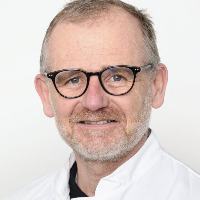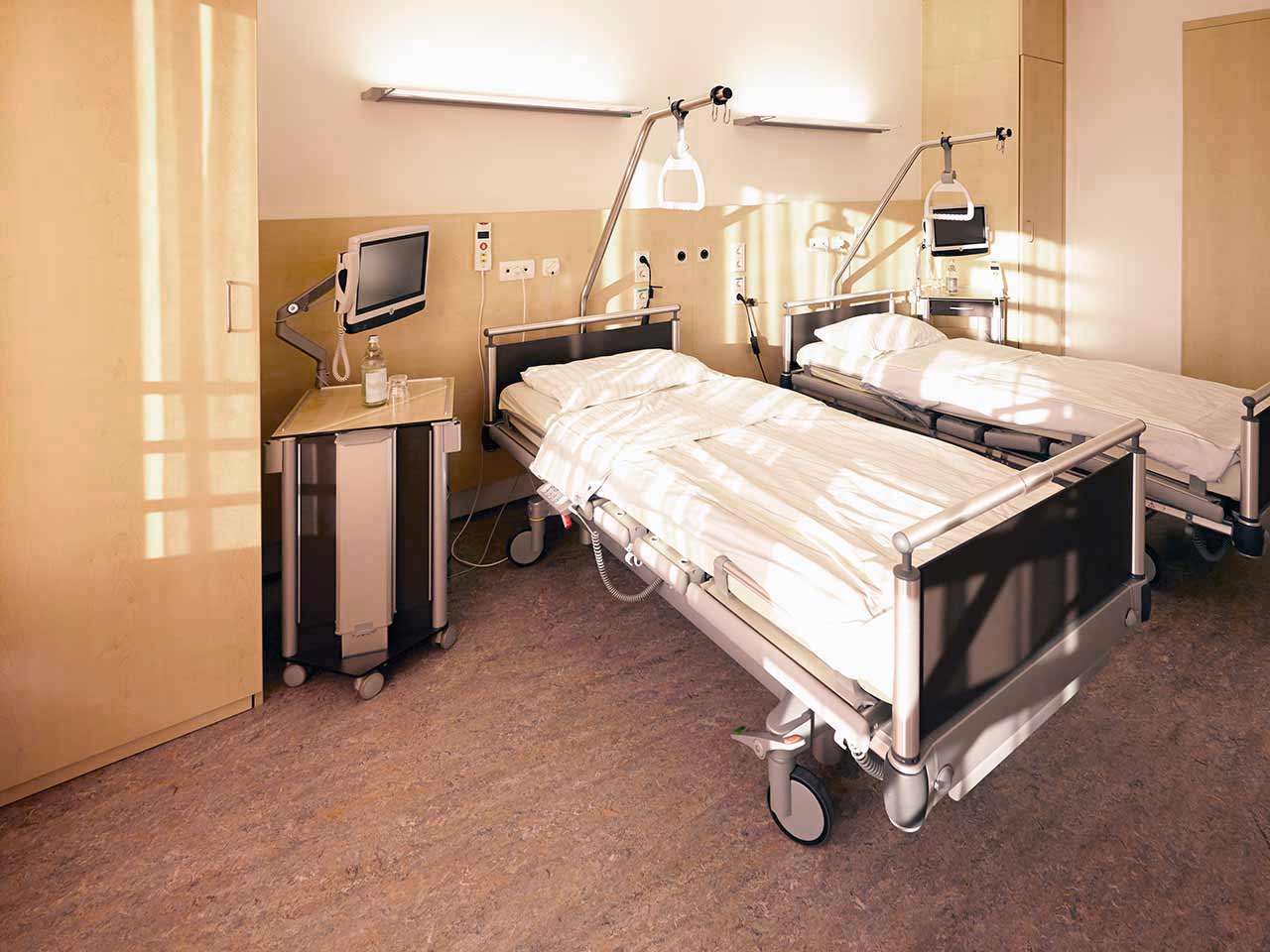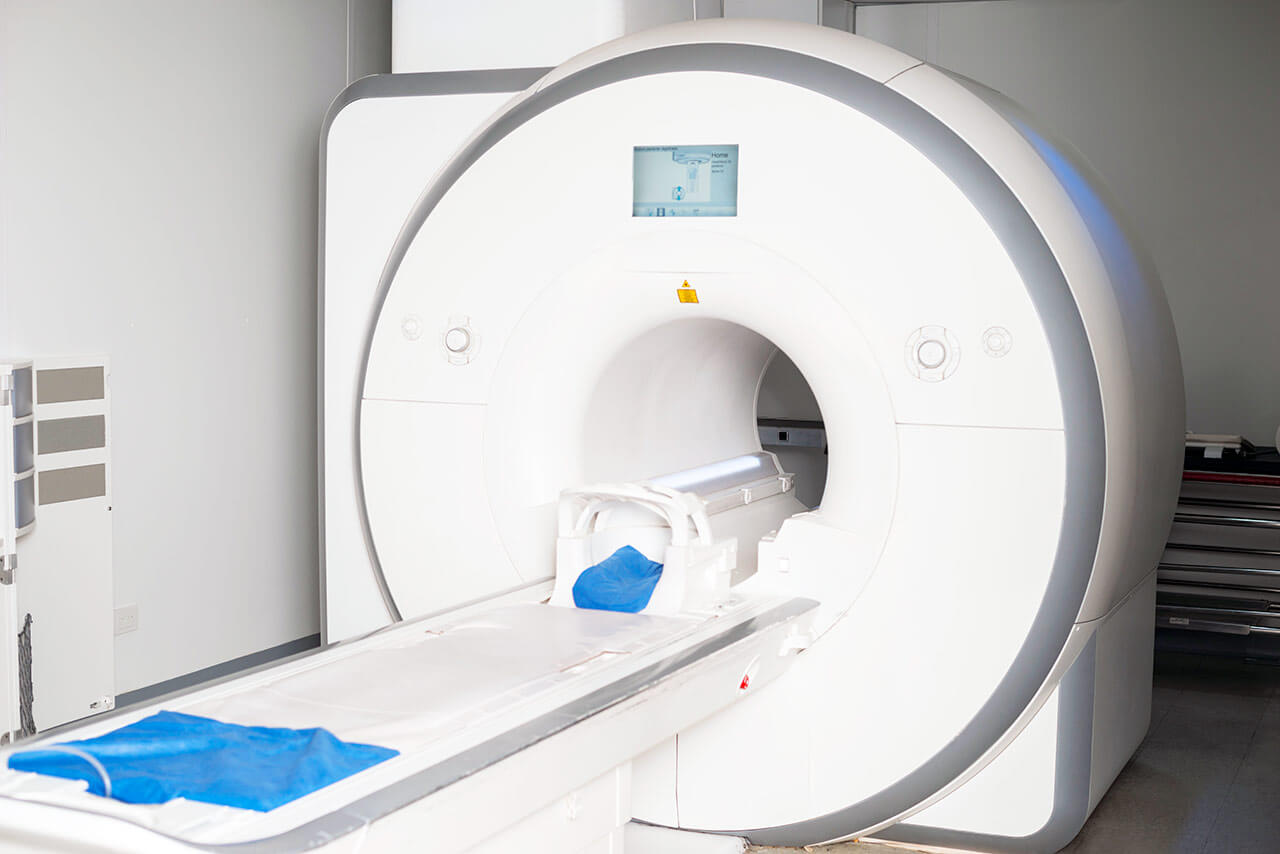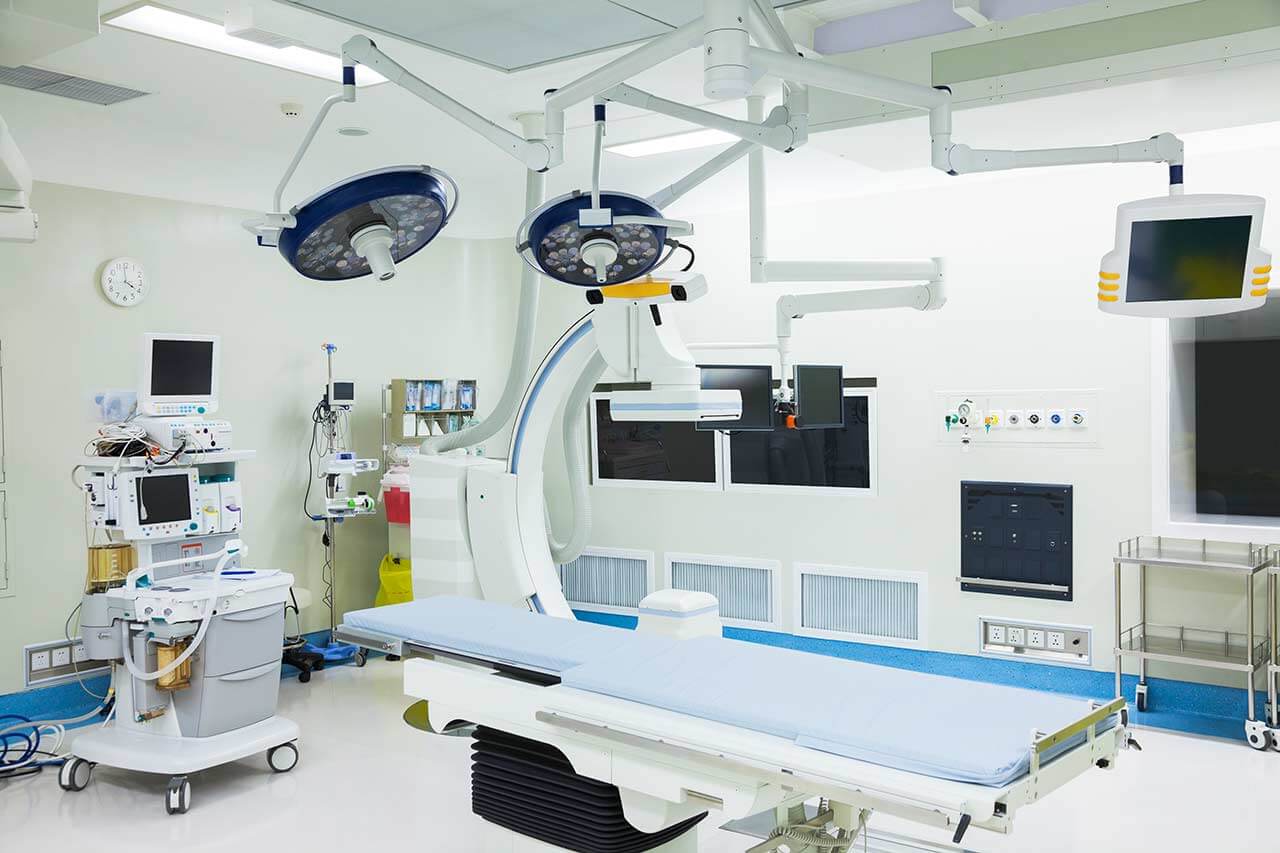
The program includes:
- Initial presentation in the clinic
- clinical history taking
- review of medical records
- physical examination
- laboratory tests:
- complete blood count
- general urine analysis
- biochemical analysis of blood
- TSH-basal, fT3, fT4
- tumor markers
- inflammation indicators
- indicators of blood coagulation
- CT / MRI of the abdomen and retroperitoneum
- abdominal and retroperitoneal ultrasound scan
- full curse of radiotherapy
- nursing services
- consultations of related specialists
- explanation of individual treatment plan
How program is carried out
During the first visit, the doctor will conduct a clinical examination and go through the results of previous laboratory tests and instrumental examinations. After that, you will undergo an additional examination, including complete blood count, laboratory assessment of liver and kidney function. Based on the received results, the physician will conduct radiotherapy planning with the help of CT or MRI, make the permanent tattoo marks on the skin and conduct CT simulation in order to assess the accuracy of the rays and the radiation dose. If necessary, related medical specialists will be involved in the elaboration of a treatment regimen (tumor board).
Radiation therapy is carried out as the day hospital procedure, without mandatory admission to the hospital. At each visit, the physician will assess your general condition and the marks on the skin. After that, you will be placed in a shielded radiation therapy room, on a special table.
Each radiation therapy session lasts less than half an hour (including preparation). All this time, doctors and nurses are monitoring your condition, you can communicate with them through a loudspeaker. The procedure is completely painless. Depending on the planned course of treatment, you will visit the hospital from 1 to 3-5 times a week.
After the completion of the radiation therapy course, you will undergo control examinations aimed at assessing your condition and efficacy of treatment. After that you will receive the medical report with detailed recommendations regarding further follow-up and treatment. In the future, you will be able to have a distant consultation with your attending physician and schedule the next course of treatment, if necessary.
Required documents
- Medical records
- MRI/CT scan (not older than 3 months)
- Biopsy results (if available)
Service
You may also book:
 BookingHealth Price from:
BookingHealth Price from:
About the department
The Department of Radiation Therapy at the Nuremberg Hospital offers the full range of medical services in the field of its competence. Modern radiation therapy techniques are available here for treating both malignant and benign diseases. In most cases, the doctors at the medical facility conduct intensity-modulated radiation therapy (IMRT), image-guided radiation therapy (IGRT), and stereotactic radiation therapy. The department also successfully combines radiation therapy and hyperthermia for sarcoma treatment. Radiation therapy is conducted with the use of state-of-the-art equipment, including the advanced systems of the world's leading companies such as Varian and Siemens. Prior to any irradiation procedure, thorough planning using advanced imaging systems is made. The department is certified in compliance with DIN EN ISO 9001:2015 standards and the requirements of the German Cancer Society (DKG). More than 60,000 radiation therapy sessions are performed here every year, so patients can be sure that they trust their health to true professionals. The department's doctors always devote enough time to personal communication with the patient and explain in detail the upcoming treatment and its expected outcomes. The department is headed by Dr. med. Clemens Albrecht.
The department's specialists regularly perform intensity-modulated radiation therapy. This type of irradiation is a standard treatment for patients with lung cancer, prostate cancer, breast cancer, and head and neck tumors. Intensity-modulated radiation therapy is highly accurate because it allows doctors to adjust the intensity of the radiation dose for a specific irradiated area. Consequently, this method allows the department's doctors to direct the maximum radiation dose to the cancer focus while practically not damaging the adjacent healthy tissues, which significantly increases the patient's chances for a successful treatment outcome. Before starting intensity-modulated radiation therapy, CT scanning is used to plan the course of treatment. The procedure is quite fast and painless.
Another highly demanded treatment method in the department is image-guided radiation therapy (IGRT). This modern irradiation option is also highly effective for treating lung cancer, prostate cancer, breast cancer, head and neck tumors, etc. IGRT is performed using a linear accelerator equipped with imaging systems, which allows the department's physicians to obtain a real-time image of the tumor just before the irradiation or even during the session when the patient is on the treatment table. During the therapeutic procedure, a special computer program is used to compare the generated real-time images with the images obtained during the simulation. Thus, the specialist can adjust the patient's position on the treatment table and precisely target the beams at the tumor, ensuring its effective destruction. The IGRT irradiation technique is highly precise, so the healthy tissues surrounding the tumor are almost not affected.
Another important area of competence of the department's specialists is stereotactic radiation therapy. The treatment method involves the use of a single high-dose irradiation, which is most often indicated for patients with lung cancer, liver cancer, and brain cancer. The main benefit of stereotactic radiation therapy is the ability to deliver a high dose of radiation to the oncological focus in just one or several sessions. Despite delivering a high radiation dose to the tumor, there is almost no negative impact on the adjacent healthy tissues, due to which this type of irradiation provides not only high efficiency in the fight against cancer but also high safety of treatment.
The department specializes in the treatment of the following diseases:
- Malignant diseases
- Lung cancer
- Colon cancer
- Pancreatic cancer
- Stomach cancer
- Esophageal cancer
- Liver cancer
- Skin cancer
- Breast cancer
- Female reproductive system cancers
- Prostate cancer
- Brain cancer
- Head and neck tumors
- Benign diseases
- Arthrosis
- Heel spur
- Tennis elbow
- Other pathologies
The department's therapeutic options include:
- Intensity-modulated radiation therapy (IMRT)
- Volumetric modulated arc therapy (VMAT)
- Image-guided radiation therapy
- Stereotactic radiation therapy
- Radiation therapy combined with hyperthermia for the treatment of sarcomas
- Other types of radiation therapy
Photo of the doctor: © Nordstrahl Praxis für Strahlentherapie
About hospital
According to the reputable Focus magazine, the Nuremberg Hospital ranks among the top German medical facilities!
The hospital is one of the largest, highly specialized medical centers in Europe and positions itself as the maximum care hospital. The healthcare facility is an academic hospital of the Paracelsus Medical University in Nuremberg. It houses 42 departments, institutes, and highly specialized centers focusing on various medical fields. All the hospital's employees work hand in hand for the benefit of their patients. The specialists strive to provide top-class medical care for every patient. Moreover, the medical team always shows a humane attitude and understanding towards the patient's life situation, making every effort to support them during the entire therapeutic process.
The total number of beds in the hospital is 2,233. The medical team consists of more than 8,400 employees, including many world-famous doctors and professors who had their clinical training at the best medical facilities in Germany, other European countries, and the USA. The hospital admits more than 100,000 inpatients and more than 170,000 outpatients annually. The number of patients who come to the hospital steadily increases every year, which is the best confirmation of its high standards and outstanding treatment results.
The cornerstone of successful clinical practice is state-of-the-art technical infrastructure. The hospital offers its patients innovative technologies such as the Da Vinci surgical system, devices for stereotactic procedures, intraoperative radiation therapy, angiography, PET CT devices, high-intensity focused ultrasound, 64-slice CT scanners, and other advanced medical devices. The combination of cutting-edge technical facilities and the high competence of the physicians allows for the provision of effective treatment even in the most complex cases.
The Nuremberg Hospital is undoubtedly one of Germany's leading medical facilities, where patients benefit from modern infrastructure, precise diagnostics, effective treatment, and responsive care.
Photo: (с) depositphotos
Accommodation in hospital
Patients rooms
The patients at the Nuremberg Hospital live in comfortable single and double rooms. Each patient room is equipped with an ensuite bathroom with a shower and a toilet. Standard rooms include an automatically adjustable bed, a bedside table, a wardrobe for storing clothes, a table and chairs for receiving visitors, a TV, and a radio. The hospital also offers Wi-Fi.
If desired, patients can live in enhanced-comfort rooms. Such patient rooms are more spacious, and their furnishings correspond to the level of an upscale hotel.
Meals and Menus
The patients at the hospital are offered tasty and balanced meals three times a day: breakfast, lunch, and dinner. The patients have a daily choice of three dishes for lunch and dinner, while breakfast is served as a buffet.
If, for some reason, you do not eat all foods, you will be offered an individual menu. Please inform the medical staff about your food preferences prior to treatment.
Further details
Standard rooms include:
Accompanying person
Your accompanying person may stay with you in your patient room or at the hotel of your choice during the inpatient program.
Hotel
You may stay at the hotel of your choice during the outpatient program. Our managers will support you for selecting the best option.





